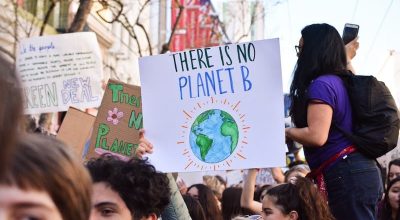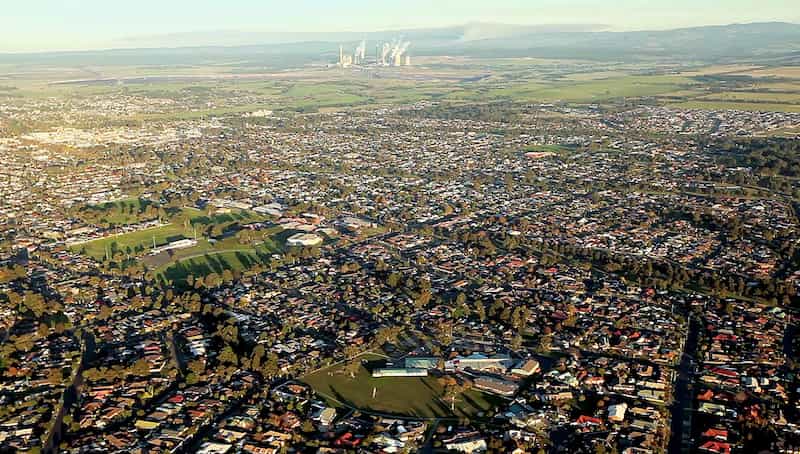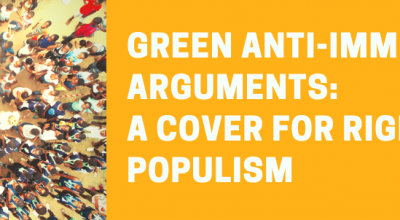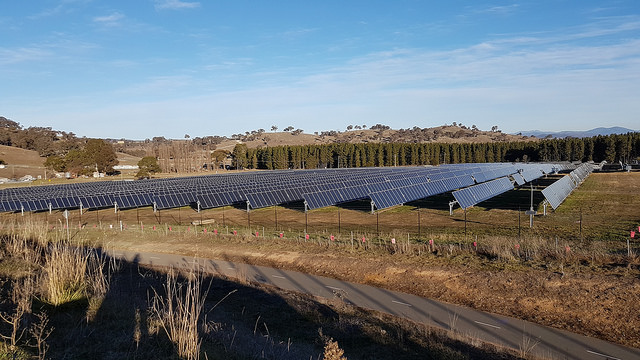Economy

Democracy, Economy, Social Justice
Jobs, Justice And A Liveable World: The Green New Deal And Electoral Politics
On August 29, 2019 the UQ Greens, alongside QLD Greens MP Michael Berkman hosted the forum ‘Jobs, Justice & a Liveable World: A Green New Deal for Australia’. Looking at the leadership being provided around the world on the issue, this panel asked the question what might a Green New Deal look like in Australia? With permission from the organisers Green... Read More
Democracy, Economy, Social Justice
Jobs, Justice And A Liveable World: For A Job Guarantee
On August 29, 2019 the UQ Greens, alongside QLD Greens MP Michael Berkman hosted the forum ‘Jobs, Justice & a Liveable World: A Green New Deal for Australia’. Looking at the leadership being provided around the world on the issue, this panel asked the question what might a Green New Deal look like in Australia? With permission from the organisers Green... Read More


Economy, Environment, Social Justice
Lessons From The Election Part 2: Unions And The Environment Movement
There has been significant debate over both the role of unions and the environment movement in the 2019 Australian Federal Election. Godfrey Moase argues the two need to work more closely if we want to see action on climate change. This is the second part of a two part series on lessons for social movements following the 2019 Australian Federal... Read More
Economy, Environment
Emancipation In The Anthropocene
In 1958 Hannah Arendt published, The Human Condition.(1) At the beginning of this wide-ranging work, Arendt proposes “a reconsideration of the human condition from the vantage point of our newest experiences and our most recent fears.”(2) The major historical event which motivated this study was the launch of Sputnik I by the Soviet Union and the prospect this technological advance... Read More


Economy, Social Justice
The Divine Right Of Capital In Australia Today: Corporations, Community Interests, The Body Politic And The Natural Environment
There is a long and distinguished list of academic contributors to a large body of literature which addresses the question—what makes capitalist democracies work better/best/optimally? Some of the preconditions established in that literature are: that taxes/subsidies address externalities (1); that property rights are respected, contracts are well understood and cheaply, honestly and easily enforced; and that ‘stewards’ (for example, elected... Read More
Democracy, Economy
Reimagining The Future Of Corporate Governance In Australia
The events of the Financial Services (Banking) Royal Commission (FSRC) have brought the corporate governance practices of some of Australia’s largest public companies into plain view. The insights revealed have been shocking, and shown that directors have not listened to internal whistle-blowers exposing misconduct, not asked the hard questions internally to fulfil their directors’ duties, nor acted in public interest.... Read More


Economy, Social Justice
Property Rights, Corporate Personhood And Nature
This paper formed part of the Green Institute Report ‘Rebalancing Rights: Communities, Corporatations and Nature’. Property rights are a social construction, embodied in law and enforced by the coercive power of the state, represented by police, courts and prisons. This fact is so obvious that it ought to go without saying, but it is routinely denied by many on the... Read More
Economy, Environment, Social Justice
Our Power: The Latrobe Valley, Hazelwood, And Our Energy Future
The Latrobe Valley is home to three brown coal mines and four power stations which have provided Victoria with over 80 per cent of its power, every day, for over 90 years. The documentary Our Power traces the footsteps of the Latrobe Valley’s history, starting from the coal community’s birth in the 1920s to the establishment of the State Electricity... Read More


Democracy, Economy, Environment, Social Justice
Green Anti-Immigration Arguments Are A Cover For Right Wing Populism
With the backdrop of dramatic decrease in migration to Australia in 2018 to a 10 year low, the population debate has reared its ugly head. In recent months Dick Smith has run an advertising blitz with the title ‘overpopulation will destroy Australia’ that compares population growth to cancer and recently took stage at Dark + Dangerous Thoughts at Mona arguing... Read More
Economy, Environment, Social Justice
What Would A Fair Energy Transition Look Like?
Opposition Leader Bill Shorten announced last week that a federal Labor government would create a Just Transition Authority to overseee Australia’s transition from fossil fuels to renewable energy. This echoes community calls for a “fast and fair” energy transition to avoid the worst impacts of climate change. But disruptive change is already here for Australia’s energy sector. 2018 has been... Read More
